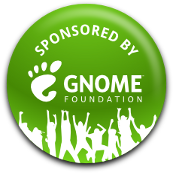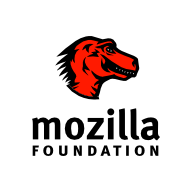“One of these mornings you’re gonna rise up singing…”
UX-Hackfest + GUADEC
This year I was present at the UX-Hackfest which was held at Igalia’s headquarters in Coruña. While I’m not really very involved with the UX team, having this event in the same place I work every day gave me the opportunity to see first-hand how the designers work, take an in-depth look at the features they are working on, and be the voice of the Accessibility Team if required. For me it was a very good experience. And in the end I didn’t need to be that voice, as several of the designs were already taking accessibility needs into account.
In other stay-at-home news, I also attended GUADEC which took place here in Coruña, the city I have been living in most of my life, and at the same Faculty where I studied computer science several years ago. It was great having GUADEC so close to home this year, no flights and so on.
As everyone has already mentioned in their posts, this year GUADEC was really successful, from the point of view of the organization (kudos to all the people involved) as well as the content and community. Although it is true that there were a lot of challenges, we had a lot of energized people working hard to make the project a success.
From my side this GUADEC was really busy. After a release-team meeting, we gave a “five minute” presentation at the AGM that, unlike most of the other presentations, started a little debate. Some people feel that the challenges faced in producing GNOME require someone pushing the community in the short-medium-long term, and some think that the release team is that “someone”. Whether or not this is the case, and how to do that pushing if it is, is something that we are still debating.
I also gave a presentation at the AGM as a representative of the Accessibility Team, summarizing the work done and the features and fixes which will be included in 3.6. I gave a longer and more detailed talk about the same (slides here). As probably you already know, for GNOME 3.6 the most important accessibility feature included is “Accessibility always on”. Instead of needing to activate the accessibility support, log out and log in again, now the support is always there.
Becoming a WebKitter too: Thanks to F123&Mais Diferenças
After GUADEC, Joanmarie and I began working on the accessibility support of WebKitGTK/Epiphany, specifically the support with Orca, resuming the development already done by Mario. This work will be included in the next GNOME stable release, so Epiphany 3.6 will have a better accessibility support. But not only Epiphany will benefit: Because most of the work was done in WebKitGTK, all applications based on WebKitGTK will have improved accessibility support. This includes Geary, Evolution, and Yelp.
I would like to thank F123&Mais Diferenças for supporting this development and continuing to help improve the accessibility support on the GNOME platform.
GNOME 3.6 is coming
There have already been a number of posts (not to mention the in-progress release notes) describing what’s new for GNOME 3.6. In fact, some even talk about accessibility support (like this one from Matthias). So I won’t repeat what they have said. The tl;dr version is this:
- Accessibility always on
- WebKitGTK accessibility support improved
- GNOME Shell improved (wifi and power top panel menu items now accessible)
- All the stack reviewed and improved
Next?: going to Randa
Tomorrow I will be heading off for the KDE Sprint in Randa. This year some of the developers will be discussing and hacking on accessibility. Because KDE and GNOME share several key components of the accessibility stack, collaborating with the KDE community to improve accessibility support is essential. Mind you, this will not be the first time such collaboration has occurred. In previous AT-SPI2/ATK hackfests we were joined by Frederik Gladhorn and José Millán. This time I will be the GNOME guy attending a KDE event. I am looking forward to once again working with Frederik and José, meeting other KDE accessibility developers, and continuing our joint efforts towards more accessible free desktop environments. Many thanks to the KDE community, and especially to Mario Fux, for the invitation and funding to attend this event.
“… and you’ll spread your wings and you’ll take to the sky”
2019-04-10 Update: on the original post, I included a link to Pledgie in order to help to fund the KDE Spring. Right now that link is broken. If anyone is interested on what happened with Pledgie, take a look to this link.



